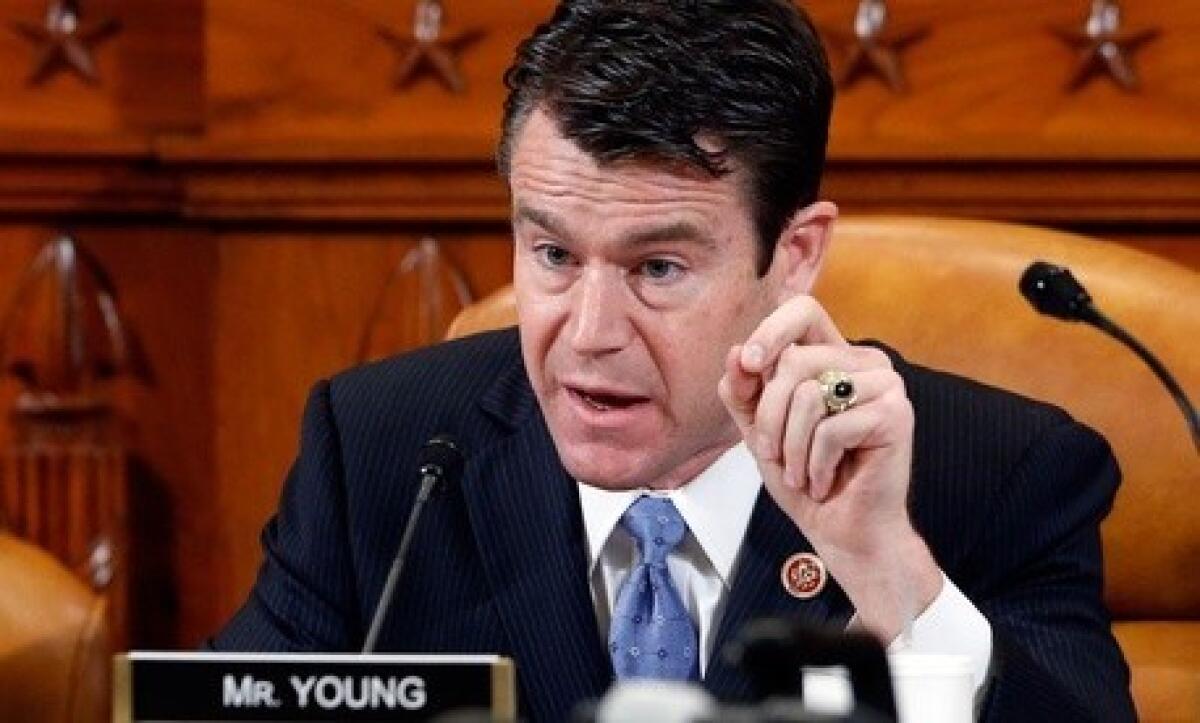Another attempt at Obamacare ‘reform’ blows up

It’s encouraging to see critics actually trying to fix what they see as flaws in the Affordable Care Act-- and disappointing when they do it so ineptly that they make the problem they’re addressing much worse.
That’s what’s happened with the proposed Save American Workers Act, introduced late last year by Rep. Todd Young (R-Ind.) Young’s target was the healthcare law’s provision that defines full-time work as 30 hours a week. That’s the threshold at which employees have to be offered healthcare by large employers.
Young’s contention is that the provision was prompting big employers to cut workers’ hours to 29 a week because the firms would have to pay a penalty for every full-time worker they don’t cover. His solution was to raise the definition of full-time to 40 hours a week, so that theoretically the employers would have less incentive to cut hours.
The Congressional Budget Office has finally released its analysis of the proposed legislation. According to its findings, Young pretty much expended his creativity quotient with the title of the bill. As its actual contents, the CBO said, they would increase the number of uninsured people in the U.S. by somewhere between 500,000 and 1 million; many of them would lose their employer-paid coverage. The bill also would blow a hole in the federal budget, increasing the deficit by about $73 billion over 10 years.
So is the bill “a real solution for those hardworking Americans who just want to provide for their families,” as Young put it? Not really. But it is a handout to big employers.
A number of problems have identified in the proposal, including the fact that no one has yet shown that American employers are systematically cutting their workers’ hours to evade the Affordable Care Act. In its most recent analysis of the healthcare law, issued Feb. 4, the CBO stated that “there is no compelling evidence that part-time employment has increased as a result of the ACA.” So Young is offering a solution to a problem that doesn’t exist.
His proposal would create such a problem, however. According to the UC Berkeley Labor Center, which examined a similar measure introduced by Sens. Joe Donnelly (D-Ind.) and Susan Collins (R-Maine) (the proposed Forty Hours is Full-Time Act), it’s much easier for an employer to slightly cut back the hours of employees working more than 40 hours a week than those working just over 30 hours -- there are more ways to be flexible with work schedules.
Also, there are far more workers in that 40-hour-plus category. The center’s analysis estimated that 6.4 million workers log between 30 and 36 hours at firms with more than 100 employees, but 55.4 million work 40 hours or more. It said that although there may be 2.3 million workers “vulnerable” to a reduction of work hours under the current law (not that it thinks that’s happening), about 6.5 million would be vulnerable under the new proposals.
The Senate bill “would make it nearly costless for employers to reduce work hours to avoid the penalty,” the center found. As a result, it would “effectively eliminate the employer requirements under the Affordable Care Act.” If that’s the Republicans’ goal, why don’t they just say so?
The higher budget deficits in the CBO’s analysis would be mostly the consequence of lower collections of penalty payments from employers -- fewer companies would be subject to the penalty and they’d be paying for fewer employees. On the other side of the coin, the government would be spending more in premium subsidies and for public healthcare programs such as Medicaid and CHIP (the children’s healthcare program) because many people losing their employer coverage thanks to these lawmakers’ bright idea would end up in those programs.
What the CBO is saying, in other words, is: back to the drawing board.







